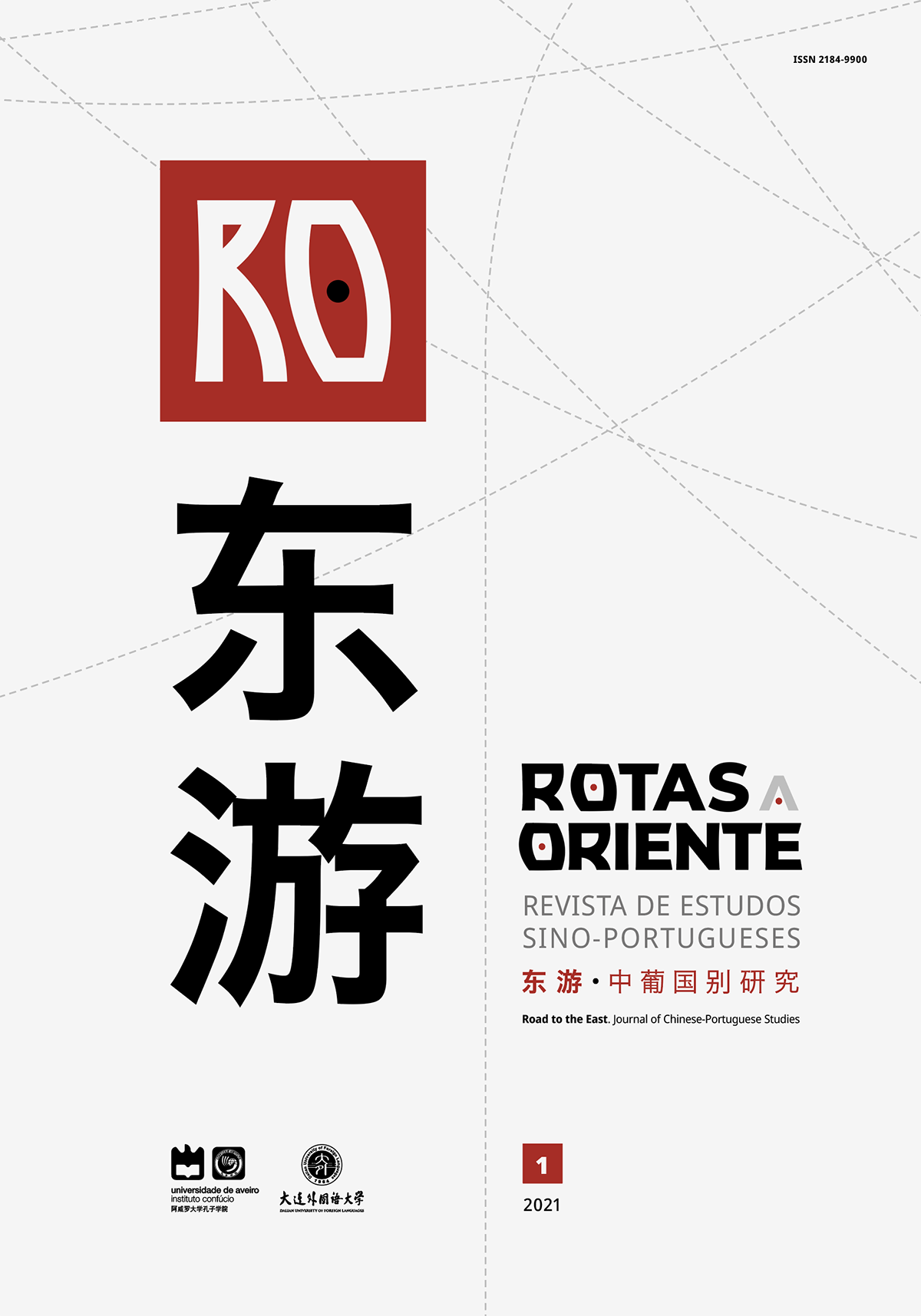Portugal, Nova Rota da Seda e rivalidade sistémica: contradições e dilemas
Resumo
A afirmação da China como potência global abalou a hegemónica pax americana que sucedeu ao mundo bipolar da Guerra Fria, alterando de forma significativa os contornos das relações internacionais. As expetáveis tensões entre americanos e chineses, assentes no pretexto de uma ‘guerra comercial’, têm assumido um papel central na definição desses contornos, fazendo emergir as contradições que, numa perspetiva hegeliana, fazem mover o Mundo. Neste contexto, a União Europeia, que mantém em simultâneo uma forte aliança transatlântica e uma relação consolidada e estável com a China, emerge como palco privilegiado para sustentar uma reflexão sobre as contradições que marcam este contexto de rápida e complexa mudança geoestratégica e geoeconómica. Contradições que ganharam novos contornos com a transformação do otimismo europeu de 2013 na ‘rivalidade sistémica’ de 2019.
Esta é uma reflexão sobre as contradições e dilemas que a UE enfrenta neste novo contexto, particularizando a posição de Portugal. Uma reflexão que levanta mais interrogações do que respostas.
Referências
Anderson, P. W. (1972). More is different. Science Magazine, 177/4047, 393-396.
Bengtsson, M., & Kock, S. (2014). Coopetition – Quo vadis? Past accomplishments and future challenges. Industrial marketing management, 43(2), 180-188.
Bousquet, A., & Curtis, S. (2011). Beyond models and metaphors: complexity theory, systems thinking and international relations. Cambridge review of international affairs, 24(01), 43-62.
Brosig, M. (2019). Restricted Complexity a Middle Path Between Post-modern Complexity Theory and Positivist Mainstream IR. In A. Orsini, P. Le Prestre, P. M. Haas, M. Brosig, P. Pattberg, O. Widerberg, J. F. Morin, L. Gomez-Mera, N. E. Harrison, R. Geyer, R., & D. Chandler (Eds.). Complex systems and international governance. International Studies Review, 22(4), 1008-1038.
CEC (2021). Updating the 2020 New Industrial Strategy: Building a stronger Single Market for Europe’s recovery. COM (2021) 350 final – SWD (2021) 352 final. Bruxelas: Comissão Europeia.
CEC (2019). Comunicação Conjunta da Comissão ao Parlamento Europeu, ao Conselho Europeu e ao Conselho, UE-China – uma Perspetiva Estratégica, JOIN (2019) 5 final. Estrasburgo: Comissão Europeia.
CEC (2015). EU-China Summit joint statement – The way forward after forty years of EU-China cooperation. Bruxelas: Comissão Europeia, disponível em https://www.consilium.europa.eu/en/press/press-releases/2015/06/29/eu-china-statement/.
Christiansen, T., Kirchner, E. J., & Wissenbach, U. (2019). The European Union and China. Londres: Red Global Press.
Eurostat (2021). International trade in goods – an overview, https://ec.europa.eu/eurostat/web/international-trade-in-goods/overview.
Garlick, J. (2016). Not so simple: complexity theory and the rise of China. China Report, 52(4), 284-305.
Harrison, N. E. (Ed.). (2012). Complexity in world politics: Concepts and methods of a new paradigm. Nova Iorque: SUNY Press.
Hegel, G.W.F. (1996), Science of Logic. Nova Iorque: Humanity Books.
Hu, W. (2021). The EU-China Comprehensive Agreement on Investment: An in-depth reading. CEPS Policy Insights, PI2021-07, Maio 2021.
Järvenpää, P., Major, C., & Sakkov, S. (2019). European strategic autonomy: operationalising a buzzword. International Centre for Defence and Security, 38.
Leonard, M. (2019). The end of ‘Chimerica’. Project Syndicate, https://www.project-syndicate.org/commentary/end-of-chimerica-and-future-of-europe-by-mark-leonard-2019-06.
Mao, Z. (1975). Obras Escolhidas de Mao Tsetung (Tomo II). Pequim: Edições do Povo.
Meunier, S. (2014). Divide and conquer? China and the cacophony of foreign investment rules in the EU. Journal of European Public Policy, 21(7), 996-1016.
Morin, E. (1990). Introdução ao Pensamento Complexo (2ª ed.). Lisboa: Instituto Piaget.
Orsini, A., & Le Preste, P. (2019). Introduction. In A. Orsini, P. Le Prestre, P. M. Haas, M. Brosig, P. Pattberg, O. Widerberg, J. F. Morin, L. Gomez-Mera, N. E. Harrison, R. Geyer, R., & D. Chandler (Eds.). (Eds.). Complex systems and international governance. International Studies Review, 22(4), 1008-1038.
Ottino, J. M. (2003). Complex systems. American Institute of Chemical Engineers. AIChE Journal, 49(2), 292.
Perthes, V. (2021). Dimensions of rivalry: China, the United States, and Europe. China International Strategy Review, 1-10.
Rodrigues, C. (2017). Chinese investment in Portugal: gaining access to cutting-edge knowledge and extending global influence. In J. Seaman, M. Huotari, M. Otero-Iglesias, M. (Eds.), Chinese investment in Europe: a country-level approach, ETNC – European Think Tank Network on China.
Sarsenbayev, M., & Véron, N. (2020). European versus American perspectives on the belt and road initiative. China & World Economy, 28(2), 84-112.
Scartozzi, C. M. (2018). A New Taxonomy for International Relations: Rethinking the International System as a Complex Adaptive System. Munich Personal RePEc Archive, MPRA Paper No. 95496.
Sgourev, S. V., & Operti, E. (2019). From Montagues to Capulets: Analyzing the Systemic Nature of Rivalry in Career Mobility. Academy of Management Journal, 62(5), 1333-1357.
Sim, Y. S. (2007). International Relations & Complex Systems Theory. In Proceedings of the 51st Annual Meeting of the ISSS-2007, Tokyo, Japan.
Tomé, L. (2016). Complex systems theories and eclectic approach in analysing and theorising the contemporary international security complex. In Handbook of research on chaos and complexity theory in the social sciences (pp. 19-32). IGI Global.
Turner, J. R., & Baker, R. M. (2019). Complexity theory: An overview with potential applications for the social sciences. Systems, 7(1), 4.
Os direitos permanecem com os autores.
Licença Creative Commons: Atribuição 4.0 Internacional.








